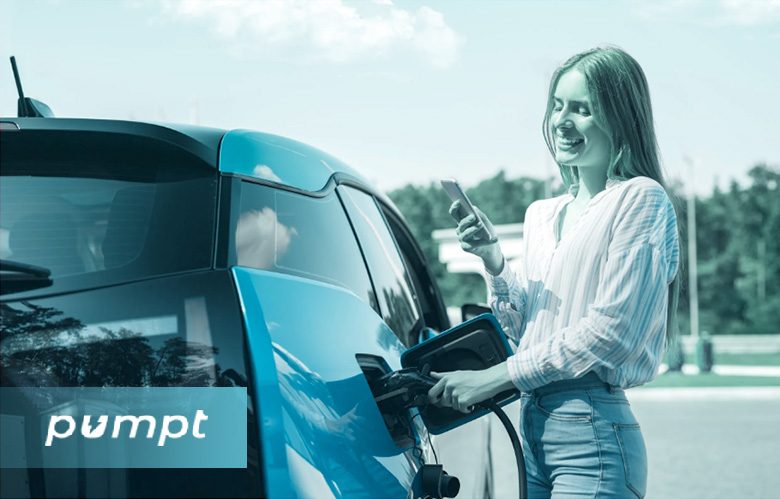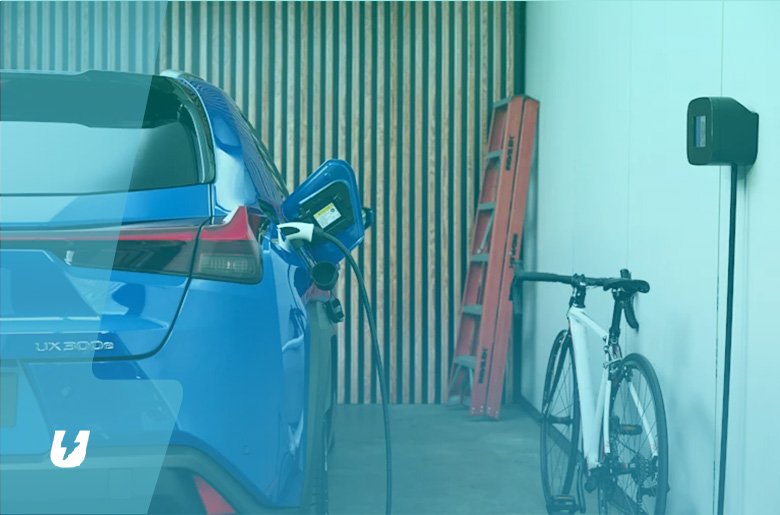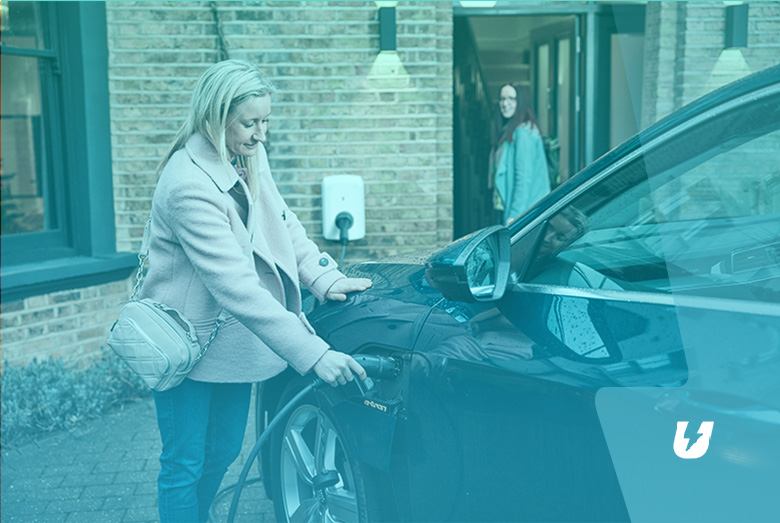To say that home charging ownership is important for EV ownership would be an understatement. EV charging is an essential, inseparable part of owning an EV.
You probably want to know what distinguishes the different EV chargers from each other – especially the 7kW home EV charger – should you find yourself in a position to acquire one. And you might be wondering why you even need this unit.
You’ve bought the car, so why would you bother to spend more on a 7kW EV charger? Why do you need a cord when you can just plug it into a conventional outlet? Why do we need to put a 7kW charger in between your electric car and the outlet?
To answer these questions, we described in detail the characteristics of the best 7kW Home Charger UK. So keep reading this comprehensive best home EV charger UK reviews.
What’s A 7kW Electric Vehicle Home Charger?
Electric vehicle chargers generally have to charge powers of 3.6kW and 7kW (22kW charging points would need a three-phase electrical supply, which is uncommon in UK homes).
3.6 kW, 7kW chargers use a single-phase electrical supply that is readily available in 95% of UK homes. Thus, the majority of people choose a 7kW charger as their ideal option since it is the best their homes can support.
What Is The Average EV Charging Time?
A typical electric vehicle contains a 60kWh battery and takes only 8 hours to fully charge from empty with a 7kW home charging point.
To get your car’s charge time, you can perform the following:
Divide your car battery’s power (in kW) by the result you get from the charging time.
Ex: 60kW/7.3 kW = 8.2 hours
That’s a rough indicator since the exact charge will depend on your environment’s temperature and your battery’s charge state. Take note that the charging rate decreases considerably as you charge your battery’s last 5%.

Is It Good To Have A 7kW Home Charger?
7kW and 3.6kW chargers depend on the single-phase electrical supply that 95% of UK homes have. Thus, the majority of EV owners choose a 7kW charger as the ideal option since it is the fastest rate their home can provide.
How Many Amps Does A 7kW EV Charger Use?
7-22kW fast charging can reduce the charge time to at least half that of slow chargers by doubling the current at 32 amps or 7kW. The typical time for a vehicle to fully charge becomes 3-4 hours. Many public and commercial chargers use this infrastructure.
Dedicated Home Charger Installation Cost
A home charger that’s fully installed costs around £799. After the installation, you will only be paying for the charger’s electricity use. The usual electricity rate within the United Kingdom is above 28p per kWh, while the usual overnight electricity cost on Economy 7 tariffs in the United Kingdom is 11p/kWh.
By shifting to an electricity tariff specifically designed for electric vehicle drivers, you can reduce the cost to 4.5p/kWh and pay under £5 as you sleep.
Learn More: How Long Does An Electric Car Take To Charge
How to Install An Electric Vehicle Chargepoint At Home
Electric vehicle charge points must be installed professionally. A qualified installer and charging provider will determine the unit’s price and installation cost.
The installation procedure includes mounting the chargepoint on a wall or garage, close to where your vehicle is parked and connecting it to the main power supply.
The installation should be completed in three hours, although it may also depend on your requirements and the installation’s complexity.
You can book installations online, through the phone or car dealership where the majority of providers happily provide free consultations and present you with the available options.
Note: It is wise to be around during the installation. The best providers will not only install the infrastructure at the best and most convenient location but also demonstrate the steps on how to charge your vehicle. They will also answer any questions you may have.
Learn More: EV Charger Installation Tips

Which is Better Between 7kW (Single-phase) and 22kW (Three-phase) Charging?
Overall, most experts recommend 7kW charging than 22kW since the majority of homes contain a single-phase electric supply. Thus, there is no need for you to spend more time and money upgrading the fuse.
If you’re thinking of buying a 22kW charger but also looking to upgrade to a three-phase electrical supply. It is important to remember:
- To use a 22kW charger, your EV must be capable of receiving 22kW AC. If your car cannot contain the electricity rate, it will only be capable of charging at a maximum rate and will not charge any faster, even if you upgrade to a 22kW EV charger…..
- There are only a number of electric cars just like the Renault Zoe that receive a 22kW charge. Even the Tesla Model 3 is only capable of charging at 11kW and will not reap the benefits of a 22kW charger. 7,4kW is the most common electric vehicle charging rate although some have lesser charging rates.
- Upgrading your home’s fusebox to three-phase will be expensive. Prices will start from £1,500 with VAT, although they could average from £3,500-5,500 (without VAT) and even reach £15,000 depending on its requirements. This does not include the extra costs of buying and installing a 22kW EV chargepoint, which is much more compared to the standard 7.4kW charger.
All in all, if your home has a three-phase electrical supply, you possess a vehicle with 22kW capacity and have the means to spend more for a 22kW charger, 22kW charging can be quite useful for faster charging. A 22kW charger is also a great option if you have multiple electric vehicles.
Otherwise, you won’t be able to reap all of its benefits and it would be more practical and less expensive to stick with the 7.4kW home charger. It all depends on your individual charging needs.
Why You Need A Home Electric Charger
Installing a dedicated electric vehicle home charger is the most cost-effective and convenient way to charge your electric vehicle. The reason for this is that the majority of drivers charge their EVx at home every night and sometimes during the daytime.
You can also feel reassured by the fact that the best untethered EV charger UK is available for personal use at any time you want. And since you will be paying the electricity bill, you can also control your vehicle’s running costs.

Do These Chargers Work Differently On Different Vehicles?
It’s only natural for drivers like you to make sure that the EV charger your buy is compatible with your vehicle’s charging port. It would be better to choose chargers with type 2 cables and correctors that are compatible with the great majority of electric vehicles.
Can You Charge Multiple Vehicles At A Time?
The majority of electric vehicle home chargers have a single socket, enabling you to charge a single car per socket. You can’t connect two cars from a cable’s extension lead to charge multiple cars at the same time.
By home charging a battery electric vehicle with hundreds of miles of range, we mean Level 2 home charging. These terms are interchangeable so don’t confuse them. The reason you’ll require this type of charging is that 120 volts aren’t enough to charge an electric vehicle.
That’s why every electric car has a default charger with a plug and connector. Level 2 charging provides a variety of miles and ranges in proportion to the brad.
The electric vehicle charger that usually comes with the Mustang Mach-E, for example, will only provide 5 miles of range for each hour of charging. This is just for a small and efficient electric vehicle. SUVs may have 3 miles of range.
This is clearly not sufficient if your battery pack can provide a range of hundreds of miles. You would require 240 volts of a Level 2 charger. There is another reason that Level 2 charging is recommended in terms of driving an electric car, and it’s different compared to other cars.
You may be driving an electric vehicle like it were a conventional vehicle, but whenever you’re charging or leaving home, it is best to get a pre-conditioned cabin (pre-heated or pre-cooled) since electric vehicles use electric heat and air conditioning.
The battery is the only electrical source and that is where you derive your range. So if you’re using your vehicle during the winter and it is very cold, you can turn the heat on and rob yourself of the range.
Thus, it is best to pre-heat the car while it is still charging. It’s something that electric vehicles enable you to do, either through scheduling or during your departure within the car, through an app, and sometimes through the key.
It’s an important step to maintain the standard range every time your drive from home and 240 volts is required to do it. Many drivers assert that 120 volts aren’t enough to use your heat or air conditioning in extreme temperatures without tapping into your battery’s power.
Main Reasons Why You Need a 7KW Home Charger
The main reasons why you need a 7KW charger are safety and compatibility
- Safety
EV chargers are there to protect both you and your vehicle. 120, 240 volts is a lot to be holding in your hand and that’s why charging systems exist. There is no high voltage in their cables until they are connected to the car.
This is important because some of the installations will be outside. Not everyone will have their charger installed inside the garage and some may have it inside their house the system is what you will find in public chargers as well. Level 2 charging in public is essentially the same hardware. If you’re in the rain or standing in a puddle of mud, you don’t want electricity.
What happens is you go and plug it in, and then the car and charger communicate with each other. The charger tells the car how much power it can provide. Then the charger is set to send power, throwing a switch internally – a big relay which you can usually hear, and energizes the cable.
But that only happens when it’s connected. Power will flow and charging will begin. It is a safety feature that protects you and the car from arcing and other stuff.
The same thing is true when you release the cable from the car’s connector. As soon as you press the release button, high voltage is shut off such that it is no longer running in the cable.

- Compatibility
Compatibility matters because Level 2 connectors generally work with any vehicle, besides a Tesla. It doesn’t matter if it’s a different brand. It doesn’t matter if the charger has more or less power. You can’t put too much power into the car – the car and the charger communicate with each other and work it out.
You actually might wanna think about having more power than you need and future-proof your installation. You might end up with a bigger, more power-hungry SUV in the future. These are durable items that should last many years. Why not invest a little bit more now and then you’ll be ready for the future?
As regards compatibility, we have mentioned Tesla. Tesla is the other type of connector – it has its own type. Every other current EV uses this type, which is named J1772. If the connector fits your car, it will work.
You don’t have to worry about that at all. While I’m talking about compatibility, also know that because of its standard, that brand doesn’t matter. You don’t need a Ford charger for a Ford EV.
Having said that, there are a couple of manufacturers – Ford included, following the lead of Tesla, that provides for free with the purchase of the car a combination of Level 1/Level 2 chargers, with interchangeable plugs.
What that means is you don’t necessarily have to invest more in hardware, just the installation of just the outlet. This is a great move because they know you have to pay at least some to get the circuit installed.
Two levels of current will provide different speeds of charging at Level 2. Level 2 sounds like one thing but it’s actually not one thing – it’s many things. It could be you’re adding less than 10 miles of range per hour to more than 30 miles of range per hour, depending on the amp rating.
If your EV doesn’t come with Level 2 charging or you want to charge faster than the provided unit can accomplish, you’re gonna have to choose a charger.
How Do We Classify chargers?
If you look at EV chargers in the market, you will find that some of them are hardwired to the wall, while sometimes they have a plug.
What are the advantages of those units with a plug? Well for one thing, if you go to another location with an outlet, you can take the unit with you and plug it in there.
Maybe you have a summer home or a relative who has an outlet you can use. Or maybe you’re a renter and you’re fortunate enough to have an outlet at your disposal. Maybe when it’s time for you to leave and your lease is up and it’s time to leave the place, it’s easy to just pull the charger and go without calling the electrician.
The cost is slightly higher for a unit with a plug, and installation for an outlet might be slightly higher as well. Hard wiring is tidier looking, and sometimes it’s required. If you go to 48 amps or higher, of the current rating on the charger, it has to be hardwired.
Also outdoors, some municipalities will not allow you to use an outlet because of weather considerations. So those are some of the things you need to bear in mind.
Another big differentiator nowadays is whether the charger is networked or not. And you can still get either type. If it’s not networked, then it’s simpler – just plug it in and start charging.
The network type allows you to control charging, monitor charging sometimes, and keep track of how much energy you’ve used, all through a smartphone app. This adds cost to the charger typically, and so you know, every EV you can think of today has this feature as well.
So you can schedule it to charge when power is cheaper in some areas overnight, off-peak. Or keep an eye on charging and start and stop it through the car. So you don’t necessarily need your charging unit to do this, but it is available and it is a distinguishing factor among the products.
And one of the big things that distinguish chargers from each other is the amount of power they provide to the car which affects charging speed. And typically, the more powerful the charger, the more expensive it’s going to be.
Some of them will give you a particular maximum level and others may be adjustable for different circuit levels that’ll add a little price too. You might be even able to change that charging speed using an app on your phone if it’s a network unit.

How Often Should You Charge Your Electric Vehicle At Home
Charge your electric vehicle as often as needed. It would be just like how you charge your mobile phone – either overnight or topping during the day as needed.
While it’s not necessary for the majority of people to charge every day, a lot of car owners plug in every time they park their car out of habit to get the most range and prepare for long unexpected trips.
Charging overnight enables them to take advantage of the cheap electricity rates during night time and drive for just 2p per mile. It also helps ensure that the vehicle’s battery is fully charged by morning. There is no need for you to unplug if the battery is full since charging will cease automatically with the cheapest EV home charger.
The majority of drivers also utilize charging facilities at public destinations or their workplaces to recharge.
Important tip: The majority of cars will enable you to set a charging limit. Follow the manufacturer’s advice on how to charge your car. There are limit settings of 90% charge to enable the battery management system to make the charging of cells more even.
Installing a Home EV charger
When considering what EV charging station is right for your home, it’s always worth thinking about your needs now and into the future as this could save you a lot of money down the track.
Here at Pumpt, we made the home installation process simple. Once you have chosen your preferred charging station for your home, you can get in touch with our team.
Ready to delve into the details? Find out more by clicking here: How to Charge Your Electric Car

